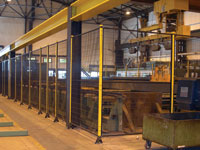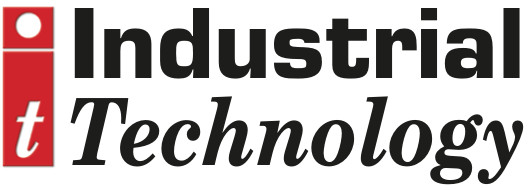
Posted to News on 22nd Jan 2012, 00:00
Machine guarding - DIY or out-source?
By Jeremy Procter, a Member of BSI's MCE/3 committee, former Convenor of the European Standards Committee responsible for Machine Guards (CEN TC114 WG11), and Managing Director of Procter Machine Guarding.

>Guarding is important to machinery in several different ways: it protects workers, influences how operatives interact with the machine, and it helps customers, operatives and factory visitors to form their first impressions of the machine. In addition, guarding needs to be designed, manufactured and installed in accordance with the applicable standards so that the machine fulfils the relevant essential health and safety requirements of the Machinery Directive 2006/42/EC and can be CE marked.
>Machine builders and those responsible for health and safety in workplaces do not always appreciate fully the above points. But get it wrong and a machine may need to be modified before it can be CE marked, or it can cause injury or even death; almost every month the HSE (Health and Safety Executive) reports yet another prosecution following an injury caused by inadequate guarding. In addition, poorly conceived guarding can restrict productivity and, consequently, profitability.
>For machine builders wishing to undertake guarding in-house, Procter Machine Guarding, which is the UK's leading machinery guarding specialist, has prepared various free publications and calculators:
- Guide to Machinery Guarding Standards
- Guide to the New Machinery Directive 2006/42/EC
- White Paper: Machinery Directive and Fixings for Fixed Guards
- Risk Assessment Calculator
- Safety Distance Calculator
These are available from the Free Downloads page on the company's website at www.machinesafety.co.uk or they can be requested by emailing [email protected].
>However, whether machine builders are manufacturing one-offs or series machines, taking full responsibility for the guarding in-house often turns out to be more expensive than out-sourcing it to a specialist, and it can take longer. Furthermore, machine builders are not always as familiar with the guarding standards as designers employed by specialist guarding companies, which runs the risk of the guards not being fully compliant with the standard or, alternatively, being over-designed. This is not only true for close-fitting machine guards, but also for perimeter guards, whether these are bespoke or assembled from off-the-shelf modular units.
>Companies that wish to discuss their options for out-sourcing machine guarding can contact Procter Machine Guarding. If required, Procter Machine Guarding can provide a comprehensive service, covering everything from an initial survey of the machine to design, manufacture and installation. When necessary, Procter works closely with other suppliers to ensure that interlocking, light curtains and safety-related control systems function correctly in conjunction with the physical guarding. All of this can help machine builders to ensure that guards are cost-effective, ergonomic and standards-compliant so that the complete machine can be CE marked to the Machinery Directive.








